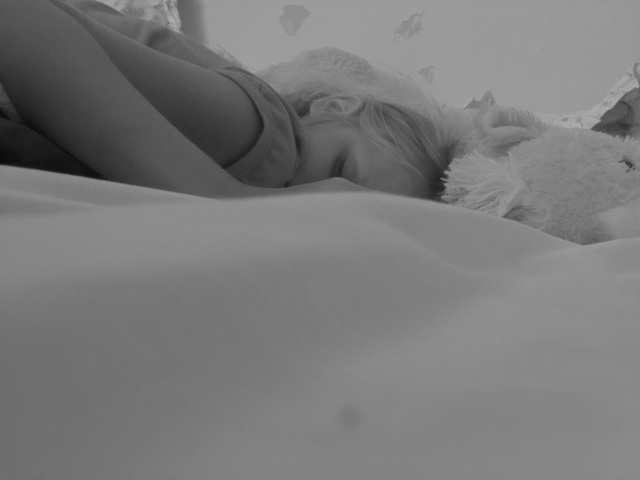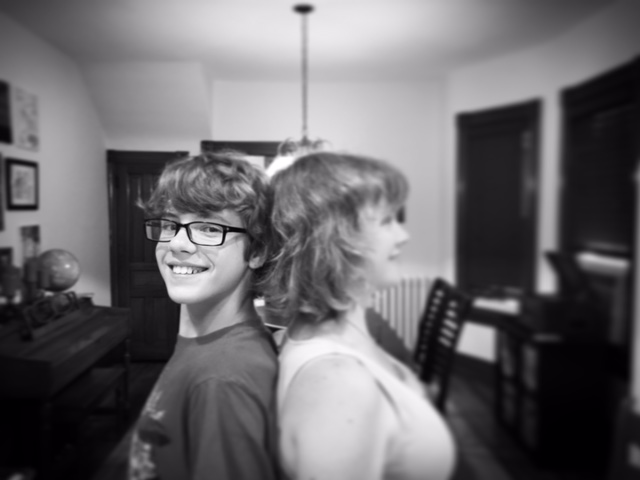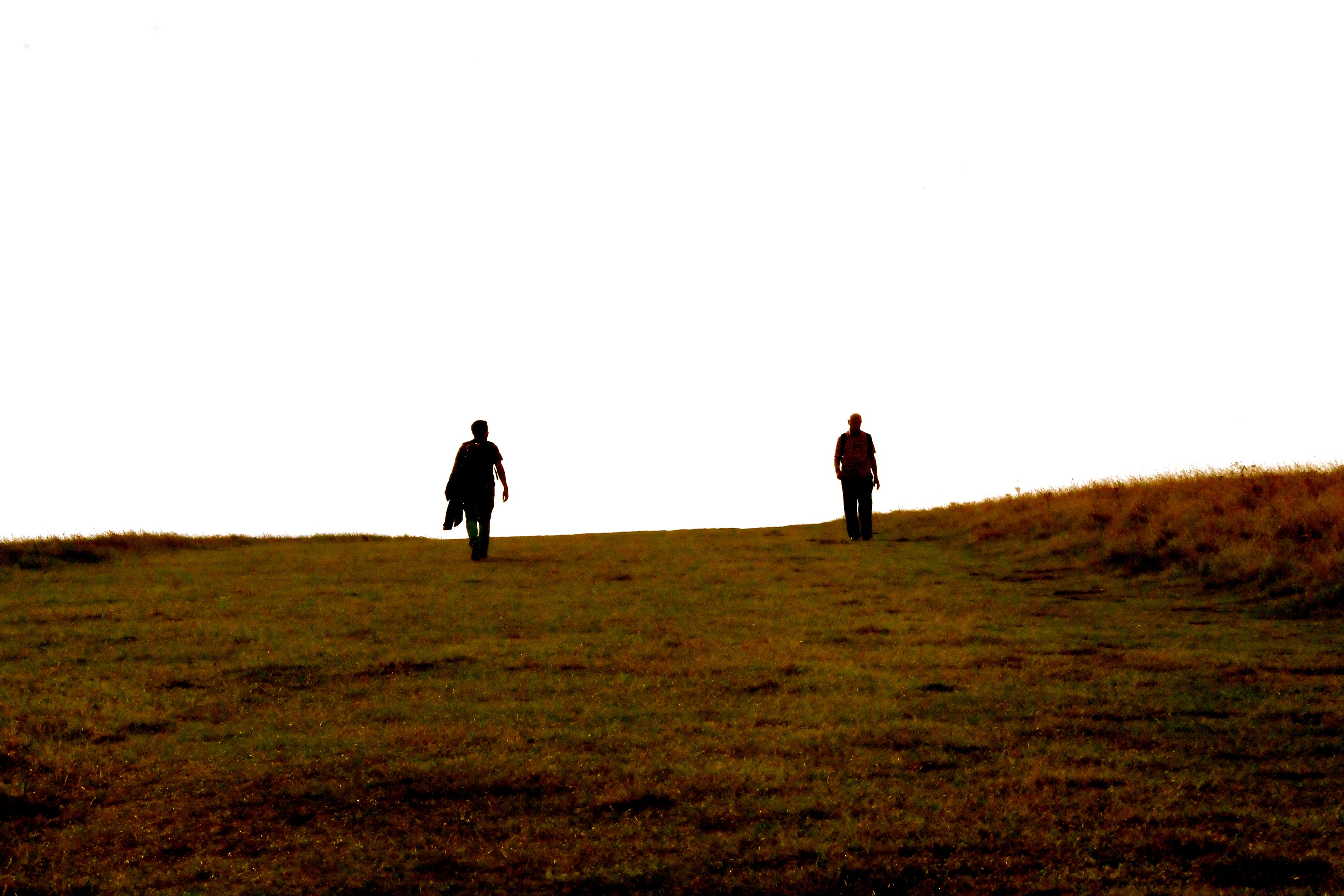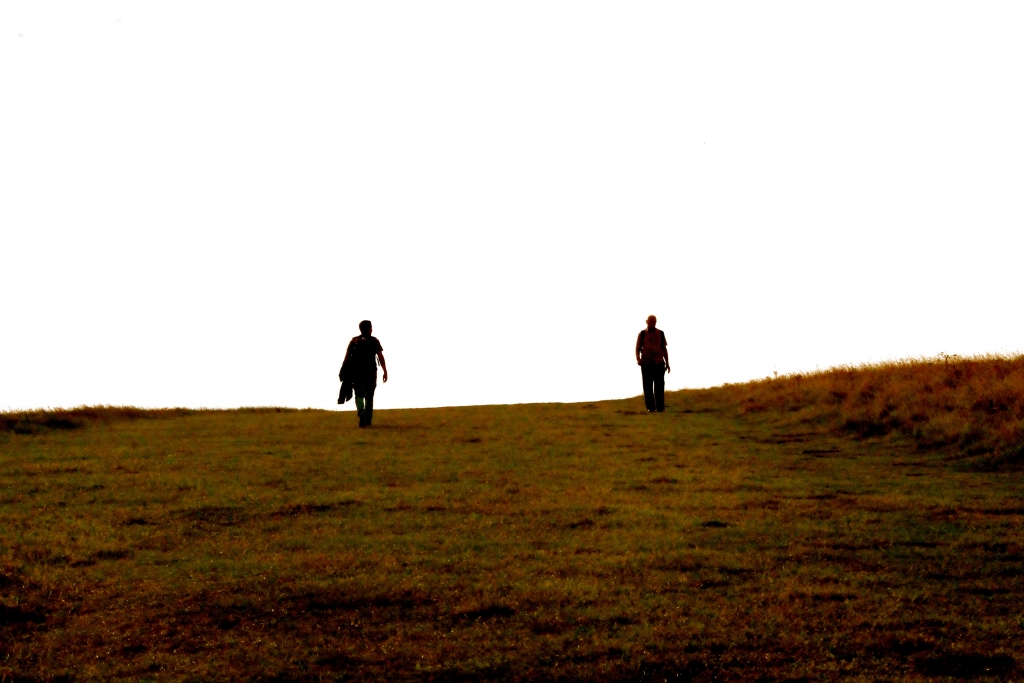
O Lord, help us to behold, to hear and to receive you in Word and Sacrament
That our mouths may proclaim your praise. Amen.
It was the fall of 2009, and my wife Maile and I were financially ruined. The housing bubble burst, and it left us reeling. Our house had halved in value, my business debts had climbed to over $50,000, and the winter loomed – for a residential painter, it is the slowest time of the year.
We made the hardest decision of our married life: we would leave Leesburg, VA, the town we loved, and move our family of six into my parents’ basement 150 miles away. We cut our losses where we could, we put a reasonable payment plan in place to address the debts we had accrued, we gave up our home, and we hired the largest moving truck we could find. We stuffed it to the ceiling with what felt like our life. And we drove north.
I felt like a complete and utter failure.
On one particularly dark night, just before we made the move, my wife found herself face down on our bedroom floor. Like David, or Esther, or one of the prophets of old, she cried out to God. Her tears soaked into the carpet. “How can you do this to us?” she asked God. “We tithe. We serve the poor at the women’s shelter. We’re heavily involved at our church. We are trying our best to live the life you want us to live, and then you … do … this.”
“How can you do this to us?”
There, on the floor in our home in Leesburg, just before we moved away, Maile heard something. She sensed something. God spoke to her, perhaps not in an audible voice, but as close to that as she’d ever experienced. God told her:
“This is a gift.”
This is a gift. That was it. No explanation. No further encouragement. Only that phrase. This is a gift.
“Well,” she said, “it’s a pretty crappy gift.” (The word crappy there is a paraphrase.) She stood up. She got back in bed. And she went to sleep.
* * * * *
In the reading from Luke today, Jesus enters a city that has a serious problem. A man living in the tombs is filled with many, many demons. He could not be contained. He injured himself and, I imagine, others. So Jesus did what Jesus will do when he is present in a situation: he turned the tables. He cast the demons into a herd of pigs, and the pigs rushed over a steep bank, into a lake, and drowned.
We don’t hear too much about the swineherds, who presumably had just lost their livelihood. We do know that they “ran off and told it in the city and in the country,” what Jesus had done. People came out to see what had happened, and they found the previously violent, possessed man sitting at the feet of Jesus. The man was in his right mind. He was no longer naked, but clothed. And the people ________.
The people did what?
The people…rejoiced?
The people…thanked Jesus for ridding their town of the demons?
The people…rushed to bring him the rest of their sick so they, too, could be healed?
No. The people were afraid. And they asked Jesus to leave. So he did.
* * * * *
Isaiah tells us in today’s reading, rather unexpectedly, that God comes even to those who do not seek him. Think about that for a moment. God is showing up in our lives all the time, even when we are not actively looking for him. Even in situations that are uncomfortable or unexpected or at first appear to be detrimental to the life we have planned out for ourselves.
One of the main questions of our existence is, How do we respond to the active, radical presence of God working in our lives? Do we accept that a life in Christ will not always be predictable, will not always look like the lives of those around us? Do we draw closer to God when presented with unexpected turns in the road, things that look like trials or hardships?
Or, like the people from the Gerasenes, do we allow our fear to overcome us? Do we ask Jesus to leave the situation by trying to take care of this relationship or that career situation ourselves? Do we we ask Jesus to leave by facing our discouragements, disappointments, and devastations on our own?
In his book Ruthless Trust, Brennan Manning writes,
Unwavering trust is a rare and precious thing because it often demands a degree of courage that borders on the heroic. When the shadow of Jesus’ cross falls across our lives in the form of failure, rejection, abandonment, betrayal, unemployment, loneliness, depression, the loss of a loved one; when we are deaf to everything but the shriek of our own pain; when the world around us suddenly seems a hostile, menacing place – at those times we may cry out in anguish, “How could a loving God permit this to happen?” At such moments the seeds of distrust are sown. It requires heroic courage to trust in the love of God no matter what happens to us.
Manning goes on to talk about his friend named Gus, a man who lives as a hermit for six months out of the year while spending the other six months preaching the Gospel and feeding the hungry and homeless. He asked Gus if he could define the Christian life in a single sentence. “Brennan,” Gus said, “I can define it in a single word: trust.”
* * * * *
Trust. It sounds nice, doesn’t it? But what can something as ethereal as trust do in the face of a senseless tragedy like Orlando? What can trust do in the face of hate and prejudice when it’s wielded against some of the most marginalized in our society? 49 of our brothers and sisters are gone.
“A voice is heard in Ramah, weeping and great mourning, Rachel weeping for her children and refusing to be comforted, because they are no more.”
What can trust do when confronted with this, our fractured world?
The simplicity and child-like quality of trust is itself redemptive. When we choose to trust, even in overwhelming circumstances, when we choose to trust even when our calling doesn’t make sense, when we choose to trust even when our present and future is obscured by pain or violence, fear or loss, we are choosing life and hope.
Trusting God looks like helping in ways we didn’t think were possible, much in the way police officers helped people out of the Pulse Night Club or the way people lined up around the block to give blood.
Trusting God looks like saying “yes” when we are called to minister or befriend or support our brothers and sisters who have been forced to the outside of our communities.
Trusting God always ends up looking a lot like love.
* * * * *
Trust.
This is the lesson Maile and I learned in 2009 and the ensuing years as God presented us with the gift of poverty, the gift of solitude, the gift of unpredictability, and the gift of a pilgrimage away from our closest friends. We learned that the best gift we can receive from God is never the actual thing God gives us, but rather the loving and patient way God uses the giving of the gift to increase our trust in Him.
I am now a full-time writer, something that had always been a dream of mine. I have been to Istanbul and to Sri Lanka writing for wonderful organizations. I’ve had the honor and privilege of helping people write out their life stories. Maile is a stay-at-home mom with our five, soon to be six, children. She volunteers at Atlas and here at Saint James.
Seven years after God told Maile, “This is a gift,” we are only beginning to see the innumerable ways that this is true. When we dropped the door of the moving truck seven years ago, we had trouble seeing the gift for what it was, but this is a life better than anything we could have imagined.
Please hear me when I say that I do not personally believe that God orchestrates events like Orlando. I don’t believe that all devastation and death is a gift from above. That’s a theological debate for another day – perhaps Reverend Lauren would be willing to chat with you about that. But no matter your circumstances, I think the question all of us face is, “Can I trust God? Even now?”
This week, as we go about our ordinary lives, can we open our eyes to the unexpected movement of God? The surprising encounters? The fateful decisions? The circumstantial happenings? Instead of allowing these unexpected changes or crosses that we bear to fill us with fear, can we somehow allow them to increase our trust in God?
You may be in a situation where you are lifting your pain and disappointment up to God, crying out, “How could you do this to me? How could you let this happen?”
As Frederick Buechner says, “Here is the world. Beautiful and terrible things will happen. Do not be afraid.”
So I say, do not be afraid. Do not turn away from Christ. Instead, wait with patience and trust. May you, along with the psalmist, cry out:
“Be not far away, O Lord;
you are my strength; hasten to help me.”










